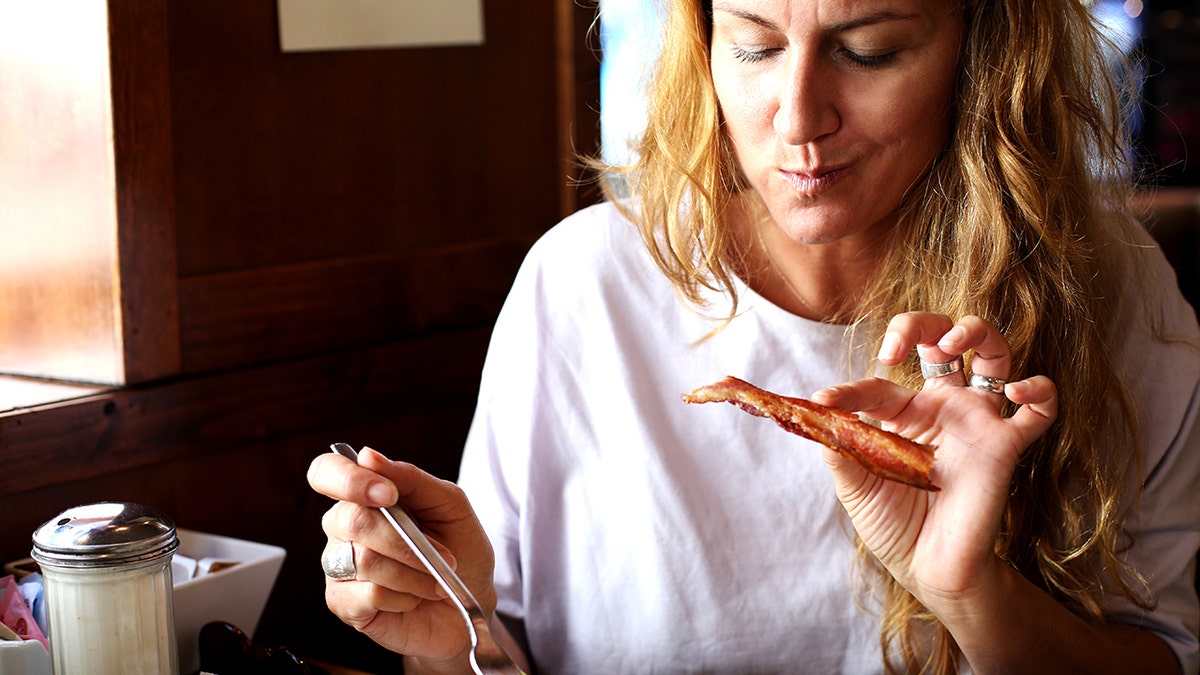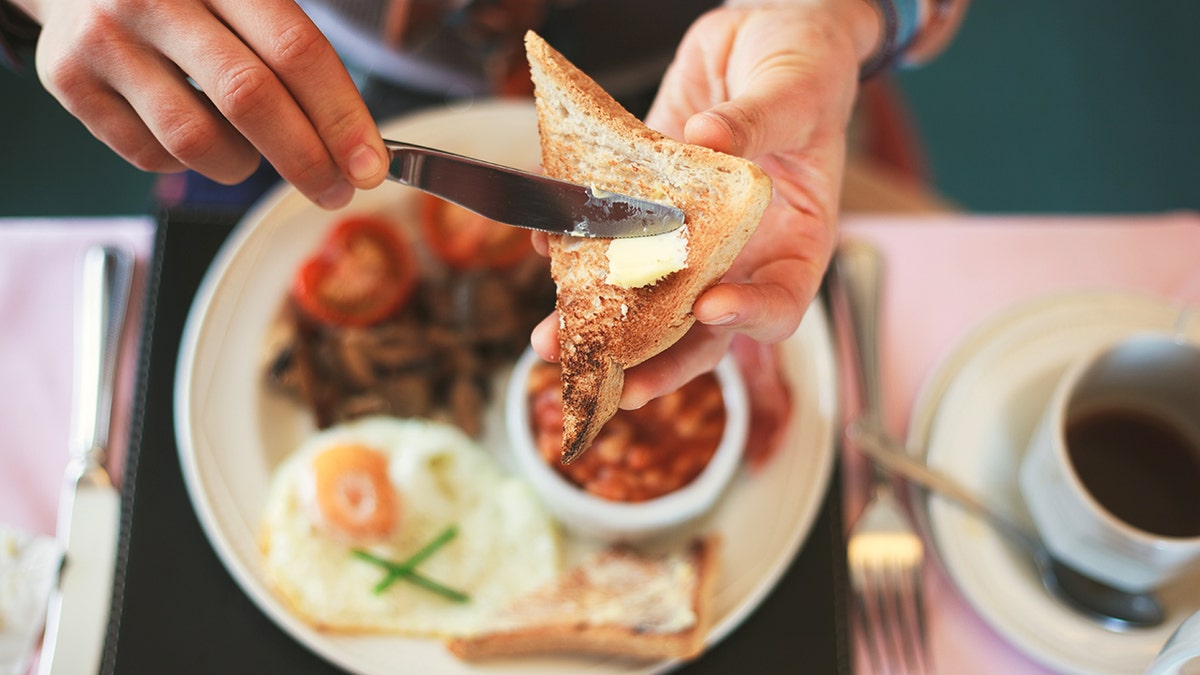NEWYou can now listen to Fox News articles!
Specific eating behaviors have been linked to a surprising medical condition.
In addition to conventional risk factors, like lower body mass index and older age, skipping breakfast and eating dinner late are independently associated with osteoporosis, according to a new study.
Researchers at Nara Medical University in Japan examined the lifestyle habits of 927,130 people from an insurance claims database.
5 EVERYDAY FOODS AND DRINKS SILENTLY DAMAGING YOUR LONG-TERM HEALTH, SAY NUTRITION EXPERTS
Participants included adults 20 years or older (55% female and 45% male) who had a health checkup between April 1, 2014, and February 28, 2022.
The researchers followed the patients, who had a median age of approximately 67, for approximately 2.6 years to see who developed an osteoporosis fracture in the hip, spine, forearm or humerus.
What is osteoporosis?
Osteoporosis is a silent disease that occurs when bone mineral density and bone mass decreases, according to the National Institutes of Health.
Most people don’t know they have the disease until they break a bone – most commonly in the hip, spine or wrist.
EATING MORE FRUITS AND VEGETABLES LINKED TO SURPRISING EFFECT ON SLEEP
Osteoporosis is a common cause of fractures in post-menopausal women and older men.
The U.S. Preventive Services Task Force recommends that women 65 years and older have a bone density scan at least once to screen for osteoporosis.
Study findings
The study found that skipping breakfast more than three times a week and eating a late dinner were associated with other poor lifestyle choices, like smoking, drinking alcohol daily and not getting enough sleep or exercise — suggesting that these unhealthy lifestyle habits accumulate over time.
(The authors said the most common dietary habit in Japan is eating breakfast, lunch and dinner, defining a “late dinner” as eating less than two hours before bedtime more than three times a week.)

“We demonstrated that these eating patterns frequently co-occurred with other unhealthy behaviors — such as smoking, low physical activity and insufficient sleep — suggesting that comprehensive lifestyle counseling may be important for fracture prevention,” lead author Hiroki Nakajima, M.D., Ph.D., of Nara Medical University, told Fox News Digital.
DO YOU REALLY NEED THREE MEALS A DAY? EXPERTS DEBATE THE TRADITIONAL RULE
People with these unhealthy behaviors were already more likely to be diagnosed with osteoporosis — but not having a routine eating schedule was independently associated with a higher risk of osteoporotic fractures.
CLICK HERE TO SIGN UP FOR OUR HEALTH NEWSLETTER
The study findings were recently published in the Journal of the Endocrine Society.
“Establishing routines — like having meals at specific times — supports our well-being without requiring constant thought or reliance on willpower.”
One key limitation is that this was an observational study — meaning it only shows that skipping breakfast or eating late dinners is associated with the bone disease, but doesn’t prove that it actually causes it.
The authors also relied on a lifestyle questionnaire that was self-reported, so more objective research is needed.
Healthy routines
Previous research has confirmed that eating meals on a regular schedule is good for people’s health.
Healthy eating routines include consuming all meals in a time period of fewer than 12 hours per day, eating the most in the earlier part of the day, and avoiding food intake close to bedtime.

“There are several reasons eating breakfast and dinner on time benefits our health, but one key reason I often highlight is that establishing routines — like having meals at specific times — supports our well-being without requiring constant thought or reliance on willpower,” Su-Nui Escobar, a registered dietitian in Miami, told Fox News Digital. (She was not part of the study.)
“As a busy mom myself, I often rely on breakfasts I can either prepare in advance or those that I don’t have to cook,” she said.
Some of Escobar’s favorite easy breakfast ideas include the following.
- Greek yogurt, frozen or fresh fruit, and low-sugar granola
- Overnight oats
- Egg muffins (consider preparing in advance and freezing them)
- High-protein smoothies (consider natural sources of protein, such as Greek yogurt or cottage cheese

She also recommends the following easy dinner ideas.
MORE IN HEALTH NEWS
- Pan-fried salmon or cod, a simple salad and rice
- One-pan shrimp or chicken with potatoes and roasted vegetables
- Air-fryer chicken tenders with sweet potato fries and veggies
- Asian beef bowls
Read the full article here










